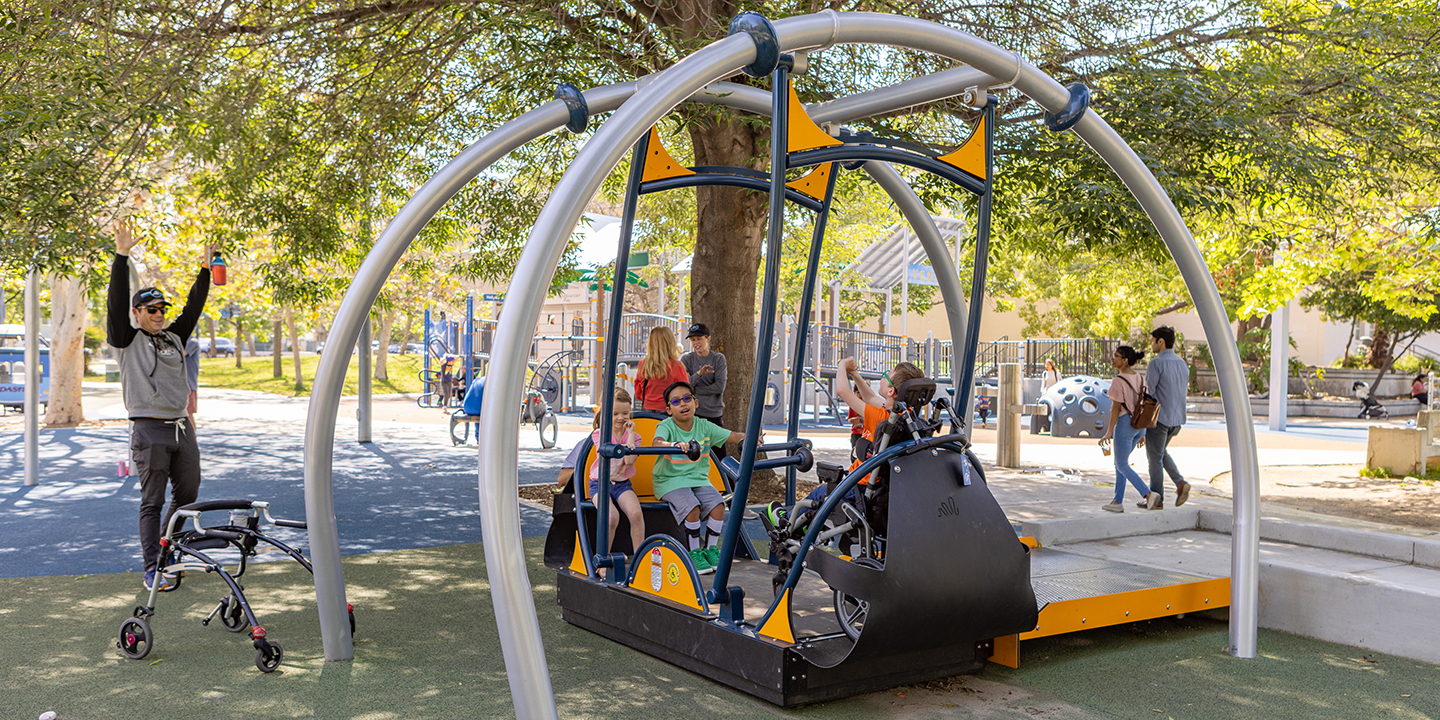Why Inclusive Playgrounds are Important

Every child deserves equitable access to play. Every child deserves to be included.
The conversation of inclusion is reaching past the point of ADA-compliant design. With 1 in 4 Americans having a diagnosed disability (CDC, 2022), inclusive spaces are becoming popular around the world. We, as playground designers and manufacturers, are constantly learning what makes for a successful day of play—not only from caregivers, siblings, scholars and therapists, but also people with disabilities.
The industry is now including diagnoses such as Autism and Sensory Processing Disabilities into how we consider design. These diagnoses require a sensory-diverse space that includes opportunities for spinning, swaying, swinging, climbing and engaging muscles, which help children build their sensory foundation to develop bodily awareness and executive function skills. If the playground becomes overwhelming, or a child becomes dysregulated, any one of these sensory experiences can become a sensation they automatically seek to calm themselves back down.